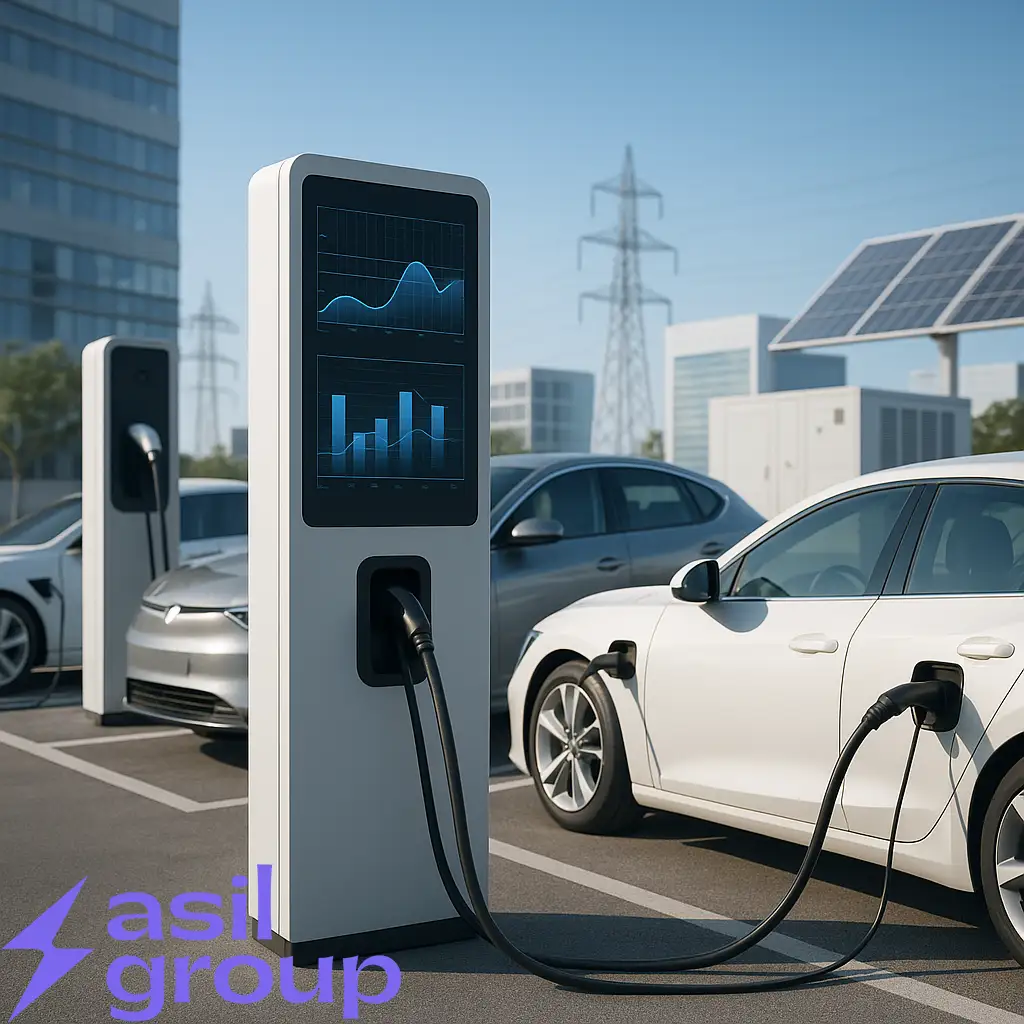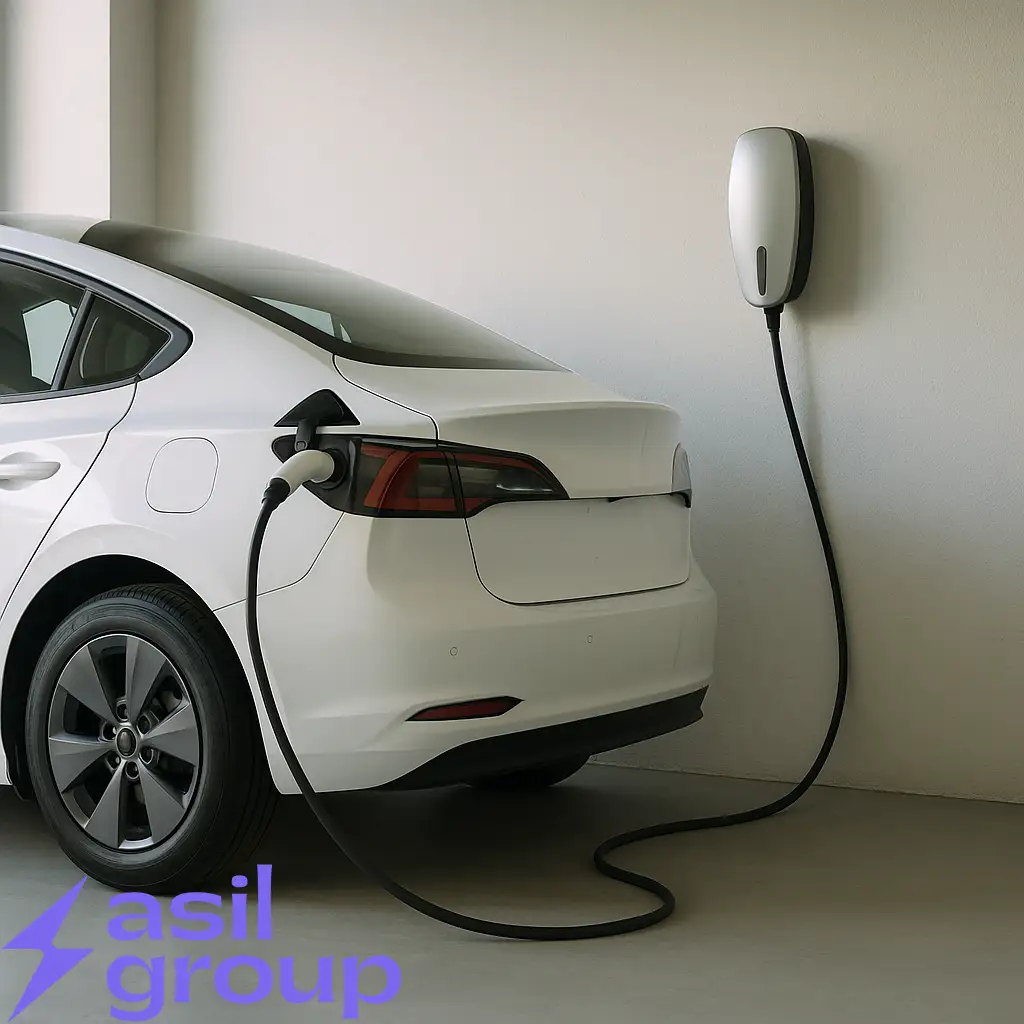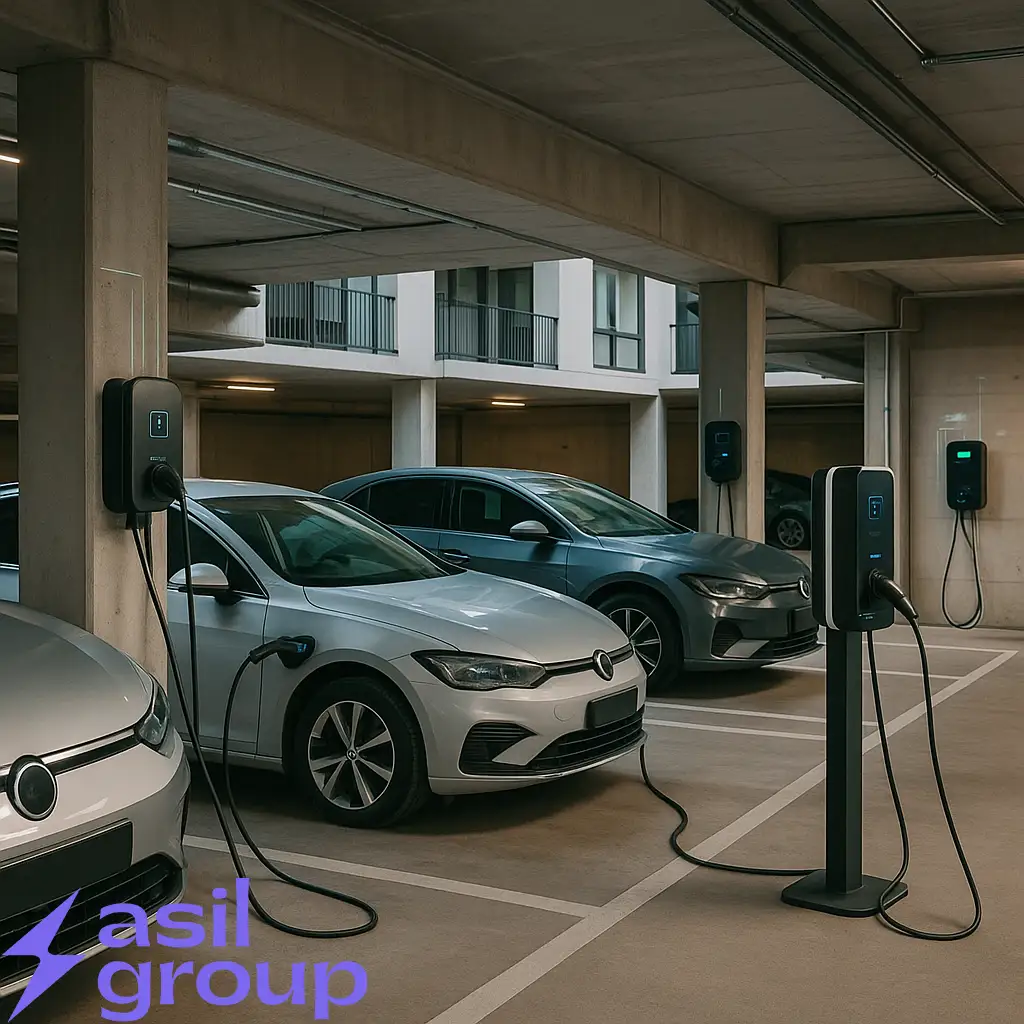
Smart Load Management in EV Charging Networks
Back to all posts As electric vehicle (EV) adoption accelerates globally,

Electric vehicles (EVs) have emerged as a pivotal innovation in the automotive industry, promising a cleaner, more sustainable future. With advancements in technology, increased environmental awareness, and supportive government policies, EVs are quickly gaining popularity worldwide. This article delves into the world of EVs, exploring their benefits, types, technological advancements, and future prospects, with a special focus on solutions provided by Asil Group.
Electric vehicles are automobiles powered by electric motors, which use energy stored in rechargeable batteries. Unlike traditional internal combustion engine vehicles that rely on gasoline or diesel, EVs utilize electricity as their primary source of power. This fundamental difference offers several advantages, making EVs an attractive alternative to conventional vehicles.
BEVs run entirely on electricity, storing energy in large battery packs. They require regular charging and have a range that varies depending on the battery capacity and driving conditions.
PHEVs combine a conventional internal combustion engine with an electric motor and battery. They can run on electric power alone for shorter distances and switch to the gasoline engine for extended range.
HEVs use both an internal combustion engine and an electric motor, but they do not plug in to charge. Instead, they rely on regenerative braking and the internal combustion engine to recharge the battery.
Many EV manufacturers are integrating autonomous driving features, enhancing safety and convenience. These features include adaptive cruise control, lane-keeping assist, and self-parking capabilities.
V2G technology allows EVs to interact with the power grid, providing stored energy during peak demand periods. This can help stabilize the grid and reduce energy costs for EV owners.
The future of EVs looks promising, with continued advancements in technology, infrastructure, and policy support. Key trends to watch include:
As battery technology improves and economies of scale are achieved, EVs are expected to offer longer ranges at more affordable prices, making them accessible to a broader audience.
Governments and private companies are investing heavily in expanding the charging infrastructure, making it easier for EV owners to find convenient and reliable charging options.
The push for sustainability is driving innovation in recycling and reusing EV batteries, reducing the environmental impact of battery production and disposal.
The synergy between EVs and renewable energy sources, such as solar and wind, is expected to grow, creating a more sustainable and resilient energy ecosystem.
Asil Group is providing innovative solutions for EV charging and infrastructure. Their range of chargers ensures that every EV owner has access to efficient and reliable charging options, including:
Electric vehicles represent a transformative shift in the automotive industry, offering numerous benefits for the environment, economy, and society. As technology continues to advance and the infrastructure improves, EVs are poised to become the norm rather than the exception. Advancing this change can lead to a cleaner, greener future, paving the way for a sustainable transportation system that benefits everyone.
By understanding the benefits, types, and technological advancements of EVs, consumers can make informed decisions and contribute to a more sustainable future. Whether you’re considering an EV for its environmental impact, economic savings, or superior performance, the transition to electric mobility promises a brighter and cleaner tomorrow. Asil Group is leading this revolution, providing cutting-edge solutions for EV charging and infrastructure to ensure a seamless transition to electric mobility.

Back to all posts As electric vehicle (EV) adoption accelerates globally,

Back to all posts As electric vehicles (EVs) become more popular,

Back to all posts As electric vehicles (EVs) become more common,

Back to all posts As electric vehicle (EV) adoption accelerates globally,

Back to all posts As electric vehicles (EVs) become more popular,
Asil Group offers cost-effective and eco-friendly EV transportation solutions. We focus on convenience with AC chargers, DC fast chargers, and Wallbox chargers, serving premium locations and enhancing quality of life with smart, sustainable EV charging.
Asil Group offers cost-effective and eco-friendly EV transportation solutions. We focus on convenience with AC chargers, DC fast chargers, and Wallbox chargers, serving premium locations and enhancing quality of life with smart, sustainable EV charging.
Asil Group offers cost-effective and eco-friendly EV transportation solutions. We focus on convenience with AC chargers, DC fast chargers, and Wallbox chargers, serving premium locations and enhancing quality of life with smart, sustainable EV charging.
Phone: +98 21 22221422
Email: [email protected]